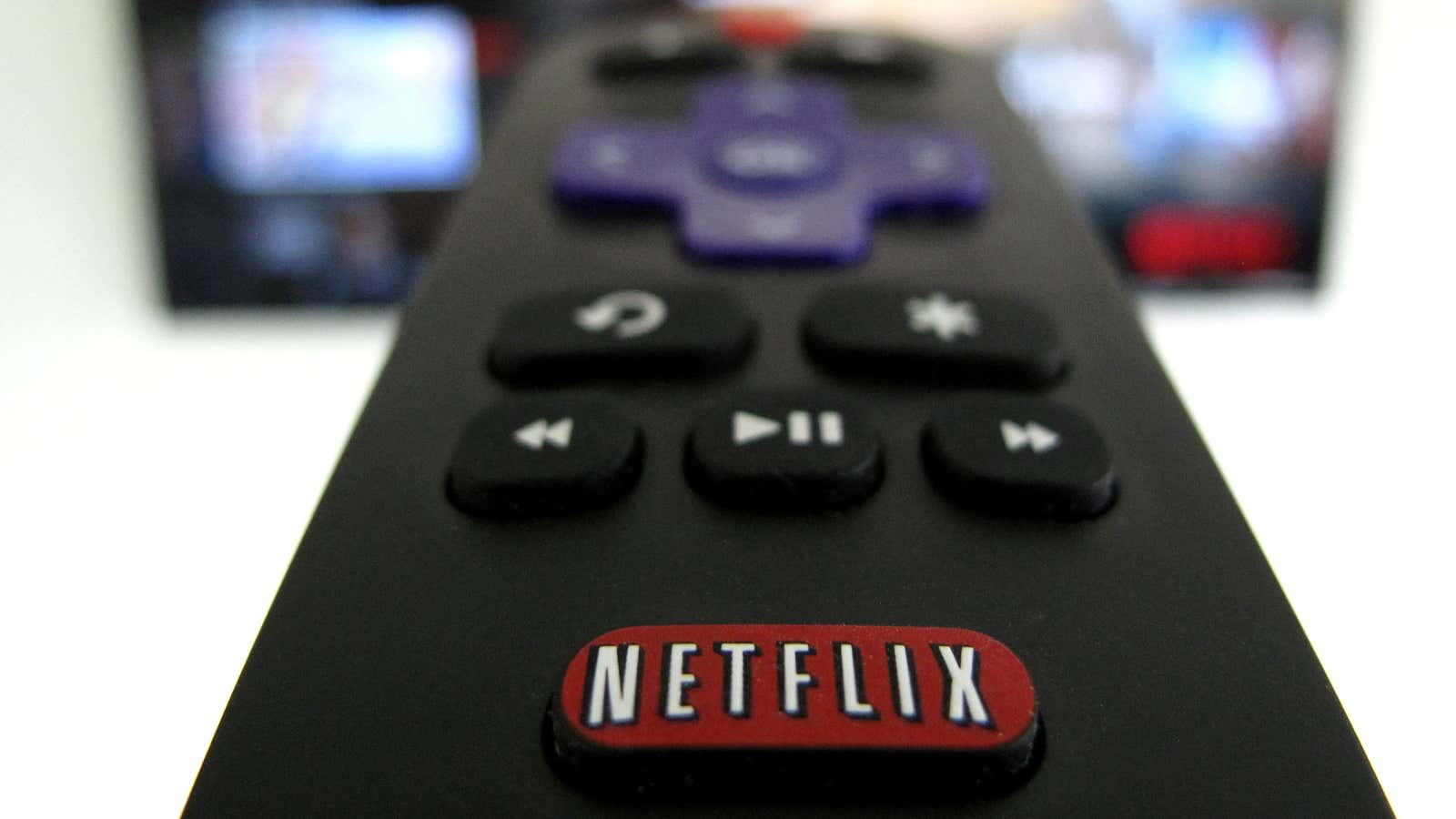A week ago, Netflix’s stock plunged when the company disclosed in its shareholder letter (pdf) that “added competition may be affecting our marginal growth,” sending shares down roughly 30%.
Around the same time, Pershing Square Capital, a hedge fund controlled by billionaire William Ackman, moved on the stock dip and bought 3.1 million shares of Netflix, worth about $1 billion at the time.
“Netflix is a primary beneficiary of the growth in streaming and the decline in linear [television]… Economies of scale and superb quality in its industry-leading content…should continue to drive future growth and widen the company’s powerful competitive moat,” the firm’s memo (pdf) to investors read yesterday. Following that news, Netflix’s stock immediately moved back up by 7.5%.
In addition to Pershing Square’s vote of confidence in Netflix’s streaming dominance, another signal from NBCUniversal’s Peacock streaming indicates that Netflix’s position atop the streaming competition may be more secure than doubters might guess.
NBCUniversal’s upstart is relevant, but still struggling versus Netflix
Comcast, the parent company of NBCUniversal, revealed in its earnings report today that it lost $1.7 billion “related to Peacock” in 2021 as it attempts to compete with Netflix and other major streaming services.
In July, the company reported that it had 54 million subscribers for the service that launched in April 2020, right around the official start of the pandemic and widespread lockdowns. Since then, the company hasn’t updated the number, and will only disclose monthly active accounts (those are users actually using the service versus those who just signed up for it), which are now at 24.5 million.
Netflix’s latest subscriber count update put it at 222 million (pdf) paid memberships globally. A direct comparison between the two services is difficult because Peacock offers a free tier, and only has 9 million paid subscribers. Peacock’s subscriber total is just a bit more than the 8.3 million subscribers Netflix added in its fourth-quarter ending on Dec. 31 alone. By comparison, Disney+ currently has 118 million (pdf) global subscribers.
How Netflix plans to keep its competitive advantage
Despite the large gap between Netflix and one of its newer competitors, the company’s acknowledgment of an increasingly crowded field, and the resulting stock tumult that followed, is one of the first concrete signs that newer players are beginning to make significant headway in the streaming space.
🎧 For more intel on streaming giants, listen to the Quartz Obsession podcast episode on sequels. Or subscribe via: Apple Podcasts | Spotify | Google | Stitcher.
Netflix’s plan to combat its rivals includes everything from gaming development to entering the short-form content space currently dominated by TikTok. Still, for now, Netflix remains the master of the streaming universe.
